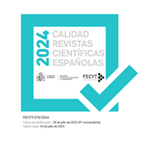Multilingualism and conceptual modelling
Resumen
One of the leading motivations behind the multilingual semantic web is to make resources accessible digitally in an online global multilingual context. Consequently, it is fundamental for knowledge bases to find a way to manage multilingualism and thus be equipped with those procedures for its conceptual modelling. In this context, the goal of this paper is to discuss how common-sense knowledge and cultural knowledge are modelled in a multilingual framework. More particularly, multilingualism and conceptual modelling are dealt with from the perspective of FunGramKB, a lexico-conceptual knowledge base for natural language understanding. This project argues for a clear division between the lexical and the conceptual dimensions of knowledge. Moreover, the conceptual layer is organized into three modules, which result from a strong commitment towards capturing semantic knowledge (Ontology), procedural knowledge (Cognicon) and episodic knowledge (Onomasticon). Cultural mismatches are discussed and formally represented at the three conceptual levels of FunGramKB.Descargas
Descarga artículo
Licencia
La revista Círculo de Lingüística Aplicada a la Comunicación, para fomentar el intercambio global del conocimiento, facilita el acceso sin restricciones a sus contenidos desde el momento de su publicación en la presente edición electrónica, y por eso es una revista de acceso abierto. Los originales publicados en esta revista son propiedad de la Universidad Complutense de Madrid y es obligatorio citar su procedencia en cualquier reproducción total o parcial. Todos los contenidos se distribuyen bajo una licencia de uso y distribución Creative Commons Reconocimiento 4.0 (CC BY 4.0). Esta circunstancia ha de hacerse constar expresamente de esta forma cuando sea necesario. Puede consultar la versión informativa y el texto legal de la licencia.











